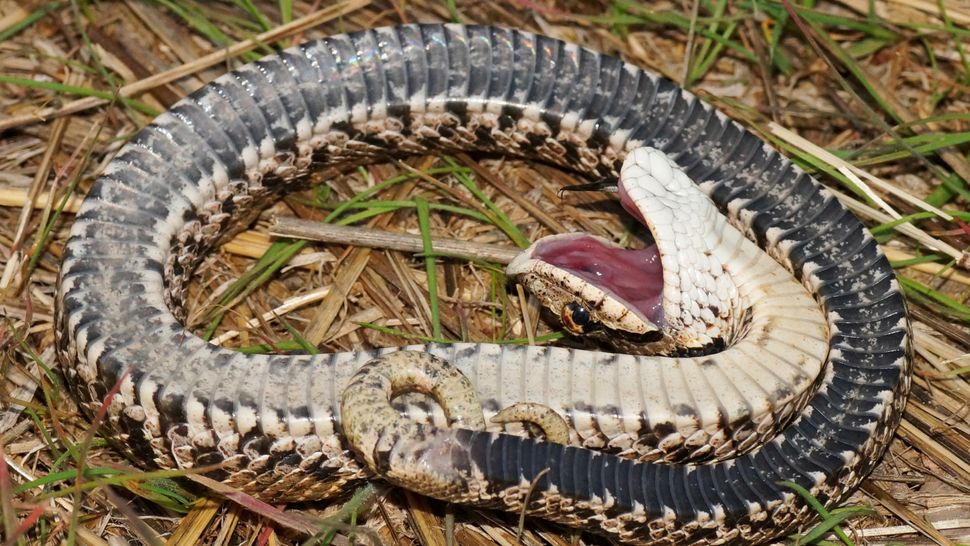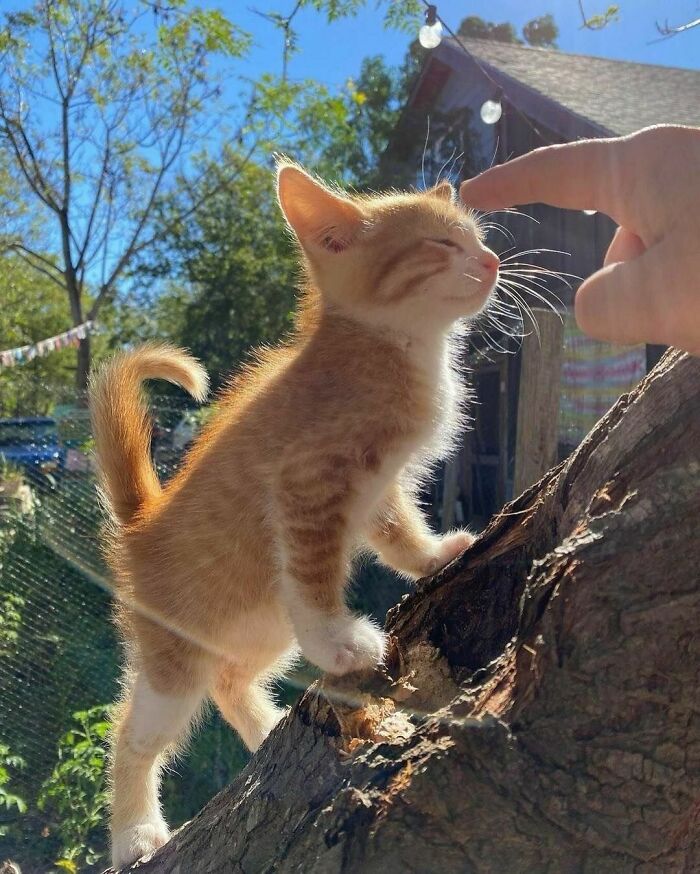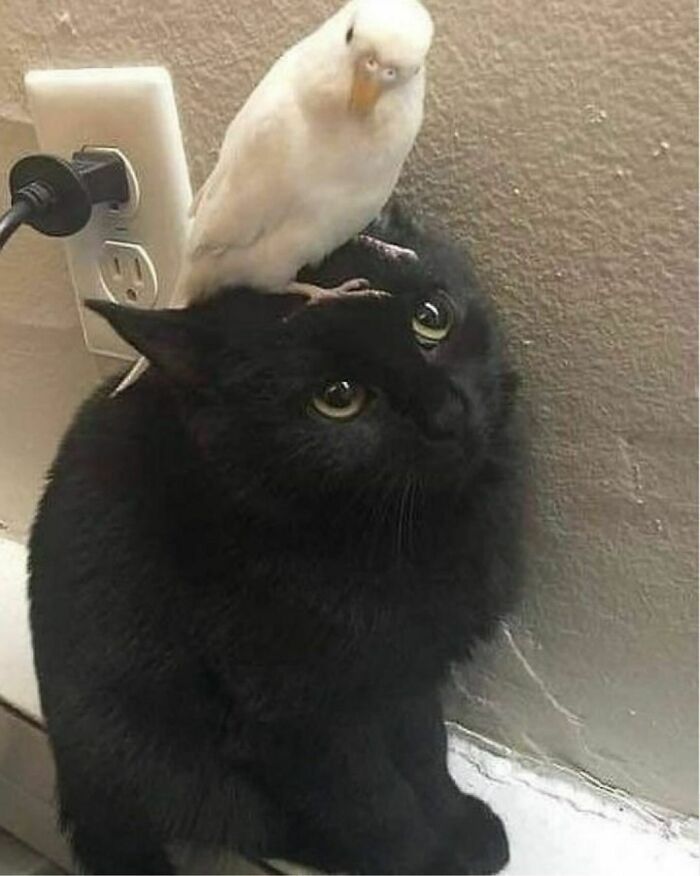Welcome to DU!
The truly grassroots left-of-center political community where regular people, not algorithms, drive the discussions and set the standards.
Join the community:
Create a free account
Support DU (and get rid of ads!):
Become a Star Member
Latest Breaking News
Editorials & Other Articles
General Discussion
The DU Lounge
All Forums
Issue Forums
Culture Forums
Alliance Forums
Region Forums
Support Forums
Help & Search
Bayard
Bayard's Journal
Bayard's Journal
July 26, 2024

Black holes are massive, mostly invisible and so powerful not even light can escape them. So what would happen if one entered our solar system? It depends on a lot of factors, including the size and distance of the black hole, experts told Live Science. But in many scenarios, not much would happen."They're not, per se, destructive," Karina Voggel, a postdoctoral researcher at the Strasbourg Astronomical Data Center in France, told Live Science. "It's just mass. Very compressed mass, but mass. It's not a cosmic vacuum cleaner." If a black hole did wander into our solar system, the largest effects would be gravitational. And those effects would depend on the mass of the black hole.
"The black holes that we're confident exist are all much more massive than the sun," Robert McNees, an associate professor of physics at Loyola University Chicago, told Live Science. "And the sun's gravity dominates the behavior of bodies in the solar system all the way out to tremendous distances, and so anything more massive than the sun wandering into our neighborhood on scales much larger than the solar system would have noticeable effects." The black holes we know of are either stellar-mass black holes — that is, black holes that are between a few to 100 times the mass of the sun — or supermassive black holes, which are 100,000 to billions of times the mass of the sun and are generally found at the centers of galaxies. But there are other possibilities, too.
(snip)
However, if a stellar-mass or larger black hole were to whiz through our solar system, it could spell disaster, depending on how close and how fast it was. If it passed through the Oort cloud — the most distant region of the solar system — it could disturb the comets and asteroids that orbit there and cause them to head toward our own planet, Voggel said. If the black hole got a bit closer — say, 100 astronomical units, or just beyond the orbit of Pluto — it could change the orbits of Uranus, Neptune and Pluto. "But likely Earth wouldn't be affected much yet," Voggel said. Only once the black hole crossed between the orbits of Uranus and Pluto would Earth start to feel its effects. "If Uranus and Pluto were passed by really close, they might get attracted by the black hole dynamically so much that they're now in orbit around the black hole," Voggel said. And now our orbit would be altered." That could change our seasons, plunging us into an ice age or raising temperatures so much that life on Earth went extinct.
If the black hole passed within Saturn's orbit, it would probably move us outside the habitable zone where liquid water can exist. If it passed within Jupiter's orbit, we'd begin to feel tidal effects as Earth began to orbit the black hole. "If you go even closer … between us and Mars or something, then you resurface the Earth," Voggel said. "The tidal effects would heat it. You would have magma; the oceans would evaporate; definitely no life possible anymore."
https://www.livescience.com/space/black-holes/ultra-rare-black-hole-found-hiding-in-the-center-of-the-milky-way
What would happen if a black hole wandered into our solar system?
Black holes aren't "cosmic vacuum cleaners," but what would happen if one wandered into our solar system?
Black holes are massive, mostly invisible and so powerful not even light can escape them. So what would happen if one entered our solar system? It depends on a lot of factors, including the size and distance of the black hole, experts told Live Science. But in many scenarios, not much would happen."They're not, per se, destructive," Karina Voggel, a postdoctoral researcher at the Strasbourg Astronomical Data Center in France, told Live Science. "It's just mass. Very compressed mass, but mass. It's not a cosmic vacuum cleaner." If a black hole did wander into our solar system, the largest effects would be gravitational. And those effects would depend on the mass of the black hole.
"The black holes that we're confident exist are all much more massive than the sun," Robert McNees, an associate professor of physics at Loyola University Chicago, told Live Science. "And the sun's gravity dominates the behavior of bodies in the solar system all the way out to tremendous distances, and so anything more massive than the sun wandering into our neighborhood on scales much larger than the solar system would have noticeable effects." The black holes we know of are either stellar-mass black holes — that is, black holes that are between a few to 100 times the mass of the sun — or supermassive black holes, which are 100,000 to billions of times the mass of the sun and are generally found at the centers of galaxies. But there are other possibilities, too.
(snip)
However, if a stellar-mass or larger black hole were to whiz through our solar system, it could spell disaster, depending on how close and how fast it was. If it passed through the Oort cloud — the most distant region of the solar system — it could disturb the comets and asteroids that orbit there and cause them to head toward our own planet, Voggel said. If the black hole got a bit closer — say, 100 astronomical units, or just beyond the orbit of Pluto — it could change the orbits of Uranus, Neptune and Pluto. "But likely Earth wouldn't be affected much yet," Voggel said. Only once the black hole crossed between the orbits of Uranus and Pluto would Earth start to feel its effects. "If Uranus and Pluto were passed by really close, they might get attracted by the black hole dynamically so much that they're now in orbit around the black hole," Voggel said. And now our orbit would be altered." That could change our seasons, plunging us into an ice age or raising temperatures so much that life on Earth went extinct.
If the black hole passed within Saturn's orbit, it would probably move us outside the habitable zone where liquid water can exist. If it passed within Jupiter's orbit, we'd begin to feel tidal effects as Earth began to orbit the black hole. "If you go even closer … between us and Mars or something, then you resurface the Earth," Voggel said. "The tidal effects would heat it. You would have magma; the oceans would evaporate; definitely no life possible anymore."
https://www.livescience.com/space/black-holes/ultra-rare-black-hole-found-hiding-in-the-center-of-the-milky-way
July 26, 2024

A tourist in London learned the hard way that the King’s Guard horses are not just for show.
The King’s Guards have long been a beloved tourist attraction in London. Visitors eagerly arrive at the location to snap a photo for their travelogues with the impeccably dressed soldiers and their horses. A video shared over the weekend by a TikTok account, Buska in The Park, captured the moment a woman received a bad chomp from one of the majestic horses.
Buska in The Park’s video showed the must-see tourist attraction being crowded by visitors while the horse seemed clearly fed up with admirers inching closer for their photo ops. Several tourists were captured taking turns and posing next to the imposing horse, triggering the animal to chomp hard on one of the tourists’ arms. As the crowd gathered around her, the woman eventually collapsed to the ground and received medical attention.
A group of armed police officers were seen coming to check up on her after she fainted. Some people online believed the group of tourists should have paid heed to the horse’s warnings. “Four warnings that horse gave!” one said. This incident isn’t exactly an isolated case. Despite clear warnings about the risks of horse kicks and bites, some tourists still give in to the temptation of getting as close as possible to the four-legged creatures.
Video clip:
https://www.tiktok.com/@busk1976/video/7394118235580353825?is_from_webapp=1&sender_device=pc
Twice in one day I've had to say, Stupid is as stupid does. This horse is clearly very irritated by these people that keep getting in his space. The pinned ears and nipping are a clue. The thing with horses is that, they can't open their mouths and release something. They have to sliiiiiiide their teeth off. I had a friend whose big old mean horse clamped down on her shoulder like that when she was a kid, and actually picked her up. Majorly ripped her rotator cuff, among other things.
The point is, like with any other animal, don't keep pushing and pushing them just for a photo op.
Horse says--Don't Stand So Close To Me

A tourist in London learned the hard way that the King’s Guard horses are not just for show.
The King’s Guards have long been a beloved tourist attraction in London. Visitors eagerly arrive at the location to snap a photo for their travelogues with the impeccably dressed soldiers and their horses. A video shared over the weekend by a TikTok account, Buska in The Park, captured the moment a woman received a bad chomp from one of the majestic horses.
Buska in The Park’s video showed the must-see tourist attraction being crowded by visitors while the horse seemed clearly fed up with admirers inching closer for their photo ops. Several tourists were captured taking turns and posing next to the imposing horse, triggering the animal to chomp hard on one of the tourists’ arms. As the crowd gathered around her, the woman eventually collapsed to the ground and received medical attention.
A group of armed police officers were seen coming to check up on her after she fainted. Some people online believed the group of tourists should have paid heed to the horse’s warnings. “Four warnings that horse gave!” one said. This incident isn’t exactly an isolated case. Despite clear warnings about the risks of horse kicks and bites, some tourists still give in to the temptation of getting as close as possible to the four-legged creatures.
Video clip:
https://www.tiktok.com/@busk1976/video/7394118235580353825?is_from_webapp=1&sender_device=pc
Twice in one day I've had to say, Stupid is as stupid does. This horse is clearly very irritated by these people that keep getting in his space. The pinned ears and nipping are a clue. The thing with horses is that, they can't open their mouths and release something. They have to sliiiiiiide their teeth off. I had a friend whose big old mean horse clamped down on her shoulder like that when she was a kid, and actually picked her up. Majorly ripped her rotator cuff, among other things.
The point is, like with any other animal, don't keep pushing and pushing them just for a photo op.
July 26, 2024

A tourist in London learned the hard way that the King’s Guard horses are not just for show.
The King’s Guards have long been a beloved tourist attraction in London. Visitors eagerly arrive at the location to snap a photo for their travelogues with the impeccably dressed soldiers and their horses. A video shared over the weekend by a TikTok account, Buska in The Park, captured the moment a woman received a bad chomp from one of the majestic horses.
Buska in The Park’s video showed the must-see tourist attraction being crowded by visitors while the horse seemed clearly fed up with admirers inching closer for their photo ops. Several tourists were captured taking turns and posing next to the imposing horse, triggering the animal to chomp hard on one of the tourists’ arms. As the crowd gathered around her, the woman eventually collapsed to the ground and received medical attention.
A group of armed police officers were seen coming to check up on her after she fainted. Some people online believed the group of tourists should have paid heed to the horse’s warnings. “Four warnings that horse gave!” one said. This incident isn’t exactly an isolated case. Despite clear warnings about the risks of horse kicks and bites, some tourists still give in to the temptation of getting as close as possible to the four-legged creatures.
Video clip:
https://www.tiktok.com/@busk1976/video/7394118235580353825?is_from_webapp=1&sender_device=pc
Twice in one day I've had to say, Stupid is as stupid does. This horse is clearly very irritated by these people that keep getting into his space. Although, the rider has him on a very loose rein, where the horse can pretty much do what he wants, the pinned ears and nipping should be a clue. The thing with horses is that, they can't open their mouths and release something. They have to sliiiiiiide their teeth off. I had a friend whose big old mean horse clamped down on her shoulder like that when she was a kid, and actually picked her up. Majorly ripped her rotator cuff, among other things.
The point is, like with any other animal, don't keep pushing and pushing them just for a photo op.
Horse says--Don't Stand So Close To Me

A tourist in London learned the hard way that the King’s Guard horses are not just for show.
The King’s Guards have long been a beloved tourist attraction in London. Visitors eagerly arrive at the location to snap a photo for their travelogues with the impeccably dressed soldiers and their horses. A video shared over the weekend by a TikTok account, Buska in The Park, captured the moment a woman received a bad chomp from one of the majestic horses.
Buska in The Park’s video showed the must-see tourist attraction being crowded by visitors while the horse seemed clearly fed up with admirers inching closer for their photo ops. Several tourists were captured taking turns and posing next to the imposing horse, triggering the animal to chomp hard on one of the tourists’ arms. As the crowd gathered around her, the woman eventually collapsed to the ground and received medical attention.
A group of armed police officers were seen coming to check up on her after she fainted. Some people online believed the group of tourists should have paid heed to the horse’s warnings. “Four warnings that horse gave!” one said. This incident isn’t exactly an isolated case. Despite clear warnings about the risks of horse kicks and bites, some tourists still give in to the temptation of getting as close as possible to the four-legged creatures.
Video clip:
https://www.tiktok.com/@busk1976/video/7394118235580353825?is_from_webapp=1&sender_device=pc
Twice in one day I've had to say, Stupid is as stupid does. This horse is clearly very irritated by these people that keep getting into his space. Although, the rider has him on a very loose rein, where the horse can pretty much do what he wants, the pinned ears and nipping should be a clue. The thing with horses is that, they can't open their mouths and release something. They have to sliiiiiiide their teeth off. I had a friend whose big old mean horse clamped down on her shoulder like that when she was a kid, and actually picked her up. Majorly ripped her rotator cuff, among other things.
The point is, like with any other animal, don't keep pushing and pushing them just for a photo op.
July 21, 2024

Death feigning is the act of playing dead to deter predators to eventually escape. (Image credit: Matt Jeppson via Shutterstock)
Snakes escape predators by playing dead — and they make their performances even more convincing by smearing themselves with their own blood and feces, scientists have discovered. Playing possum is common in the animal kingdom. Various insects, fish, amphibians, reptiles, birds and mammals all fake their own mortality in last-ditch efforts to fool predators. This behavior is known as death feigning or thanatosis.
In a paper published May 8 in the journal Biology Letters, researchers described how dice snakes (Natrix tessellata) take their Shakespearean theatrics to the next level. When confronted by a predator, the snakes expel fecal matter and musk, a putrid digestive byproduct. They then flop on their backs and feign death, and sometimes they begin bleeding from the mouth, likely in an attempt to make themselves a less-appealing meal. "Death feigning is a high-risk, high-reward behavior. If you feign death, you're completely helpless, so it would be nice if you have some sort of protection against just being instantly consumed," lead author Vukašin Bjelica, a biologist at the University of Belgrade, told Live Science.
Dice snakes reach maximum lengths of about 4 feet (1.2 meters) and are nonvenomous, so they have few defenses against larger mammals and birds in their native range of Europe, Asia and northern Africa. But by deploying this suite of behaviors — known as a defense portfolio — dice snakes can make themselves seem unappetizing. The stench of the feces and musk and the bloody drool leaking from their mouths may give the impression that the snake is a rotting carcass rather than a fresh piece of meat.
The revulsion and confusion that this macabre display evokes in a potential predator may provide just enough time for the snake to escape or even induce the predator to abandon its efforts entirely. The researchers focused on a population on Golem Grad, an island in Lake Prespa, North Macedonia. This population appears to be more predisposed to thanatosis than other populations of dice snakes. "The dice snakes from Golem Grad are in a peculiar set of circumstances. First of all, there is an intense avian predation pressure. Second, these snakes are rather large when compared to their mainland relatives," Bjelica said. "Being big is good if you're faced off against a gape-limited predator such as some birds."
https://www.livescience.com/animals/snakes/snakes-use-blood-and-feces-to-convince-predators-they-are-dead
I know this will be difficult, but try not to draw comparisons to trump.
Dice snakes fake their own death, smearing themselves with blood and poop to make the performance extra convincing
Dice snakes theatrically stage their own deaths, using blood and feces to convince predators they've shuffled off their mortal coils.
Death feigning is the act of playing dead to deter predators to eventually escape. (Image credit: Matt Jeppson via Shutterstock)
Snakes escape predators by playing dead — and they make their performances even more convincing by smearing themselves with their own blood and feces, scientists have discovered. Playing possum is common in the animal kingdom. Various insects, fish, amphibians, reptiles, birds and mammals all fake their own mortality in last-ditch efforts to fool predators. This behavior is known as death feigning or thanatosis.
In a paper published May 8 in the journal Biology Letters, researchers described how dice snakes (Natrix tessellata) take their Shakespearean theatrics to the next level. When confronted by a predator, the snakes expel fecal matter and musk, a putrid digestive byproduct. They then flop on their backs and feign death, and sometimes they begin bleeding from the mouth, likely in an attempt to make themselves a less-appealing meal. "Death feigning is a high-risk, high-reward behavior. If you feign death, you're completely helpless, so it would be nice if you have some sort of protection against just being instantly consumed," lead author Vukašin Bjelica, a biologist at the University of Belgrade, told Live Science.
Dice snakes reach maximum lengths of about 4 feet (1.2 meters) and are nonvenomous, so they have few defenses against larger mammals and birds in their native range of Europe, Asia and northern Africa. But by deploying this suite of behaviors — known as a defense portfolio — dice snakes can make themselves seem unappetizing. The stench of the feces and musk and the bloody drool leaking from their mouths may give the impression that the snake is a rotting carcass rather than a fresh piece of meat.
The revulsion and confusion that this macabre display evokes in a potential predator may provide just enough time for the snake to escape or even induce the predator to abandon its efforts entirely. The researchers focused on a population on Golem Grad, an island in Lake Prespa, North Macedonia. This population appears to be more predisposed to thanatosis than other populations of dice snakes. "The dice snakes from Golem Grad are in a peculiar set of circumstances. First of all, there is an intense avian predation pressure. Second, these snakes are rather large when compared to their mainland relatives," Bjelica said. "Being big is good if you're faced off against a gape-limited predator such as some birds."
https://www.livescience.com/animals/snakes/snakes-use-blood-and-feces-to-convince-predators-they-are-dead
I know this will be difficult, but try not to draw comparisons to trump.
July 20, 2024


























https://www.boredpanda.com/favorite-cute-cats-pics/?utm_source=pinterest&utm_medium=link&utm_campaign=prime
Funny And Cute Cats That Might Heal Your Depression


























https://www.boredpanda.com/favorite-cute-cats-pics/?utm_source=pinterest&utm_medium=link&utm_campaign=prime
July 18, 2024
If you've ever noticed that you feel more relaxed around your beloved pooch when you're under pressure than you do with your partner or a friend, you're in good company. A mounting body of research has found that when dog-owners are faced with stressful situations, their bodies tend to be less physiologically reactive when their pets are present. The unconditional support people get from their pups has a psychological impact and a physiological basis. In recent years, multiple studies have illustrated the many ways people’s dogs can provide comfort, calm their frazzled nerves, be good listeners, and provide other forms of valuable support, proving that sometimes words are simply not necessary.
“Our dog companions are very predictable and reliable—the unconditional love we get from our dogs gives us a sense of security,” says Evangeline Wheeler, a professor of psychology at Towson University in Maryland. “Dogs don’t judge you or criticize. They just sit there and look at you with loving eyes.” This silent form of canine encouragement can have a calming effect when you’re anxious or under pressure, sometimes more than the presence of a human friend or partner does.
Canine vs. human support
When people were placed in situations where they were asked to perform mental arithmetic or endure a “cold pressor” test in which their hand is submerged in ice water, those who had their dog present had smaller increases in their blood pressure and heart rate than those who had a spouse or friend present, according to research in Psychosomatic Medicine.
More recently, a study in a 2023 issue of the journal Emotion had people engage in a stress-inducing task—involving adding numbers that flashed on a computer screen—then interact with their pet dog, color in a coloring book, or wait quietly for 10 minutes. Those who interacted with their pooches experienced a greater boost in mood and a greater reduction in anxiety than those who waited or tried to destress by coloring. “Your dog is providing nonjudgmental social support—you know your dog isn’t judging you for stressing out or being a wimp,” says study coauthor Hannah Raila, a psychologist and assistant teaching professor of psychology at UC Santa Cruz. “If your dog is sitting there wagging its tail, you could catch positive emotions from the dog.”
https://www.nationalgeographic.com/premium/article/dog-ease-stress-anxiety-mental-health
Why your dog helps you relax more than your friends do
Psychologists explain the reason why dogs, even though they can’t talk, can lower your anxiety and improve your mood better than a human can.If you've ever noticed that you feel more relaxed around your beloved pooch when you're under pressure than you do with your partner or a friend, you're in good company. A mounting body of research has found that when dog-owners are faced with stressful situations, their bodies tend to be less physiologically reactive when their pets are present. The unconditional support people get from their pups has a psychological impact and a physiological basis. In recent years, multiple studies have illustrated the many ways people’s dogs can provide comfort, calm their frazzled nerves, be good listeners, and provide other forms of valuable support, proving that sometimes words are simply not necessary.
“Our dog companions are very predictable and reliable—the unconditional love we get from our dogs gives us a sense of security,” says Evangeline Wheeler, a professor of psychology at Towson University in Maryland. “Dogs don’t judge you or criticize. They just sit there and look at you with loving eyes.” This silent form of canine encouragement can have a calming effect when you’re anxious or under pressure, sometimes more than the presence of a human friend or partner does.
Canine vs. human support
When people were placed in situations where they were asked to perform mental arithmetic or endure a “cold pressor” test in which their hand is submerged in ice water, those who had their dog present had smaller increases in their blood pressure and heart rate than those who had a spouse or friend present, according to research in Psychosomatic Medicine.
More recently, a study in a 2023 issue of the journal Emotion had people engage in a stress-inducing task—involving adding numbers that flashed on a computer screen—then interact with their pet dog, color in a coloring book, or wait quietly for 10 minutes. Those who interacted with their pooches experienced a greater boost in mood and a greater reduction in anxiety than those who waited or tried to destress by coloring. “Your dog is providing nonjudgmental social support—you know your dog isn’t judging you for stressing out or being a wimp,” says study coauthor Hannah Raila, a psychologist and assistant teaching professor of psychology at UC Santa Cruz. “If your dog is sitting there wagging its tail, you could catch positive emotions from the dog.”
https://www.nationalgeographic.com/premium/article/dog-ease-stress-anxiety-mental-health
July 18, 2024
Scientists in China have discovered a previously unknown fungal pathogen that can infect humans. The fungus, called Rhodosporidiobolus fluvialis, was found in clinical samples from two unconnected hospital patients. In experiments, the researchers found that the yeast was resistant to several first-line antifungal drugs at higher temperatures — around that of the human body. This temperature also gave rise to "hypervirulent mutants" capable of causing more-severe disease in lab mice. The findings "support the idea that global warming can promote the evolution of new fungal pathogens," the researchers behind the discovery wrote in a report published June 19 in the journal Nature Microbiology.
The scientists made this discovery after examining fungi sampled from patients in 96 hospitals across China between 2009 and 2019. In all, 27,100 strains of fungi were collected and analyzed; of these, only R. fluvialis had never been seen in humans before. R. fluvialis was uncovered in the blood of two unconnected patients who, in addition to being infected with the yeast, had serious underlying health conditions. One patient was a 61-year-old who died in an intensive care unit (ICU) in Nanjing in 2013, and the other was an 85-year-old who died in 2016 after being treated in an ICU in Tianjin. The report doesn't note whether the fungal infection directly contributed to these patients' deaths or if they just happened to be infected at the time.
As part of their treatments, the patients were given common antifungal drugs, including fluconazole and caspofungin. Lab studies by the team later found that R. fluvialis is resistant to both these drugs. "This is a remarkable and truly unexpected finding, which bodes badly for the future," David Denning, a professor of infectious diseases at the University of Manchester in the U.K. who was not involved in the research, told Science.
Invasive fungal infections, which attack tissues deep in the body, mostly affect people whose immune systems are weakened, due to HIV infection or as a result of taking immunosuppressant drugs, for example. Notably, the 61-year-old infected with R. fluvialis had been immunosuppressed, and the 85-year-old had diabetes, which can hinder immune function.
However, rising global temperatures have driven fungi to adapt and extend their geographical ranges, making some more likely to come into contact with humans. Thus, new pathogens have emerged, including the drug-resistant Candida auris, which has been identified in more than 40 countries since its discovery in 2009. Meanwhile, the development of new antifungal drugs has largely stalled, leaving few options to fight resistant infections.
https://www.livescience.com/health/viruses-infections-disease/new-fungal-infection-discovered-in-china
New fungal infection discovered in China
Scientists uncovered a species of fungi that had never before been seen in humans. They say warmer temperatures could drive its evolution, for the worse.Scientists in China have discovered a previously unknown fungal pathogen that can infect humans. The fungus, called Rhodosporidiobolus fluvialis, was found in clinical samples from two unconnected hospital patients. In experiments, the researchers found that the yeast was resistant to several first-line antifungal drugs at higher temperatures — around that of the human body. This temperature also gave rise to "hypervirulent mutants" capable of causing more-severe disease in lab mice. The findings "support the idea that global warming can promote the evolution of new fungal pathogens," the researchers behind the discovery wrote in a report published June 19 in the journal Nature Microbiology.
The scientists made this discovery after examining fungi sampled from patients in 96 hospitals across China between 2009 and 2019. In all, 27,100 strains of fungi were collected and analyzed; of these, only R. fluvialis had never been seen in humans before. R. fluvialis was uncovered in the blood of two unconnected patients who, in addition to being infected with the yeast, had serious underlying health conditions. One patient was a 61-year-old who died in an intensive care unit (ICU) in Nanjing in 2013, and the other was an 85-year-old who died in 2016 after being treated in an ICU in Tianjin. The report doesn't note whether the fungal infection directly contributed to these patients' deaths or if they just happened to be infected at the time.
As part of their treatments, the patients were given common antifungal drugs, including fluconazole and caspofungin. Lab studies by the team later found that R. fluvialis is resistant to both these drugs. "This is a remarkable and truly unexpected finding, which bodes badly for the future," David Denning, a professor of infectious diseases at the University of Manchester in the U.K. who was not involved in the research, told Science.
Invasive fungal infections, which attack tissues deep in the body, mostly affect people whose immune systems are weakened, due to HIV infection or as a result of taking immunosuppressant drugs, for example. Notably, the 61-year-old infected with R. fluvialis had been immunosuppressed, and the 85-year-old had diabetes, which can hinder immune function.
However, rising global temperatures have driven fungi to adapt and extend their geographical ranges, making some more likely to come into contact with humans. Thus, new pathogens have emerged, including the drug-resistant Candida auris, which has been identified in more than 40 countries since its discovery in 2009. Meanwhile, the development of new antifungal drugs has largely stalled, leaving few options to fight resistant infections.
https://www.livescience.com/health/viruses-infections-disease/new-fungal-infection-discovered-in-china
July 14, 2024
Now for a dose of complete foolishness--How Top Male Celebrities Would Look If They Were Women
Barack Obama

Tom Cruise

Tom Hanks

Leonardo DiCaprio

Daniel Craig

Harrison Ford

Matt Damon

Woody Harrelson

Clint Eastwood

https://www.outfittrends.com/how-top-male-celebrities-would-look-if-they-were-women/
I don't know......I think the noses and beards kind of give it away.
![]()
![]()
Profile Information
Gender: Do not displayHome country: U.S.
Member since: Tue Dec 29, 2015, 03:16 PM
Number of posts: 23,001
















